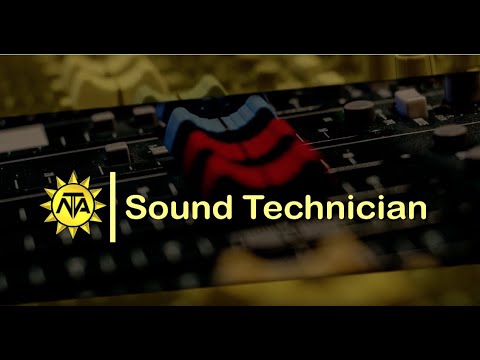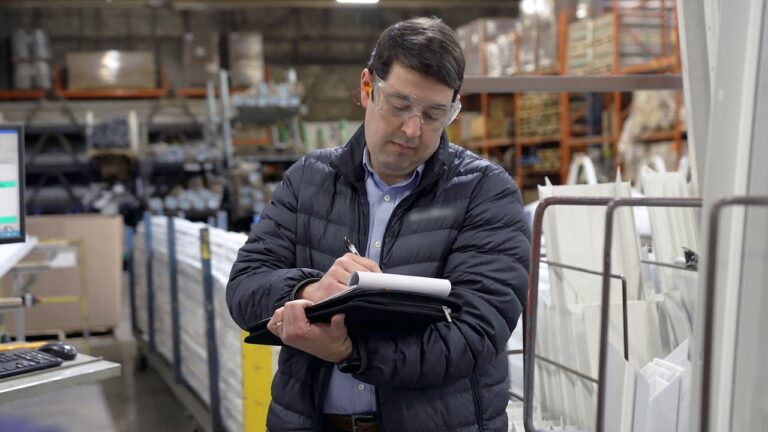Sound Technician Job: Description & Salary

Sound Technician Job Description Template
Sound Technician Job Description A sound technician is responsible for the setup, operation, and maintenance of audio equipment in various settings such as concerts, theaters, recording studios, and broadcasting studios. They work closely with performers, producers, and engineers to ensure the highest quality of sound production. The main duties of a sound technician include setting up microphones, speakers, amplifiers, and other audio equipment before events or performances. They also test and adjust sound levels to achieve optimal quality and balance. During live events, sound technicians monitor sound levels and make real-time adjustments as needed. They are also responsible for troubleshooting and solving any technical issues that may arise during performances. In addition to technical skills, sound technicians must have a good understanding of acoustics and audio systems. They must be knowledgeable about different sound editing and mixing software, as well as various types of audio equipment. Attention to detail is crucial in this role, as sound technicians need to ensure that all equipment is functioning properly and that sound is delivered at the desired quality. Two important qualities of a sound technician are: 1. Technical proficiency: Sound technicians must have a strong technical background and be proficient in operating audio equipment and software. They should be able to troubleshoot technical issues quickly and efficiently. 2. Communication skills: Sound technicians often work as part of a team, collaborating with performers, producers, and engineers. Strong communication skills are essential to effectively understand and meet the sound requirements of various individuals involved in a project. They must be able to listen to feedback and make necessary adjustments to achieve the desired sound outcome. Overall, sound technicians play a vital role in ensuring the success of audio productions. Their expertise and attention to detail contribute to creating an immersive and high-quality sound experience for audiences.Sound Technician Responsibilities
Sound Technician Requirements
How Much Does A Sound Technician Make?
Sound Technician Salary
| Experience Level | Annual Salary |
|---|---|
| Entry Level | $30,000 – $40,000 |
| Mid-Level | $40,000 – $60,000 |
| Senior Level | $60,000 – $80,000 |
A sound technician, also known as an audio technician, is responsible for setting up and operating audio equipment for various events, performances, or productions. They ensure that sound quality is optimal and troubleshoot any issues that may arise during an event. Sound technicians can work in various industries such as music, theater, film, television, and live events. The salary of a sound technician varies based on their experience level. Entry-level technicians can expect to earn between $30,000 and $40,000 annually. Mid-level technicians can earn between $40,000 and $60,000, while senior-level technicians can earn between $60,000 and $80,000 per year. These salary ranges are approximate and may vary depending on factors such as location, company, and industry demand.
Sound Technician Salaries by Country
Top Paying Countries for Sound Technician
| Country | Average Salary per Year |
|---|---|
| United States | $58,670 |
| Switzerland | $55,710 |
| Australia | $50,540 |
| Canada | $49,370 |
| United Kingdom | $45,390 |
A sound technician’s salary can vary significantly depending on the country they work in. This table showcases the top paying countries for sound technicians. The United States takes the lead with an average annual salary of $58,670. Switzerland follows closely with an average of $55,710. Australia, Canada, and the United Kingdom also offer competitive salaries in the sound technician field, ranging from $45,390 to $50,540. These figures highlight the potential earnings that professionals in this industry can expect in different countries, ensuring that aspiring sound technicians can make informed decisions about their career paths.
A video on the topic Sound Technician
Video Source : NTA Live Your PassionInterview Questions for Sound Technician
1. Can you please introduce yourself and explain your experience as a sound technician?
I have been working as a sound technician for the past five years. I have a strong background in audio engineering and have worked in various settings such as music concerts, live events, and recording studios. I am skilled in operating sound equipment, setting up sound systems, and ensuring high-quality audio for performances.
2. What are the key responsibilities of a sound technician?
A sound technician is responsible for setting up and operating sound equipment, mixing and balancing audio levels, troubleshooting technical issues, and ensuring the quality of sound during live events or recording sessions. They also collaborate with performers and other production staff to achieve the desired sound outcome.
3. How do you handle technical difficulties during a live performance?
I always come prepared with backup equipment and have a thorough understanding of the technical aspects of sound systems. In case of technical difficulties, I first assess the situation and try to troubleshoot the issue. If necessary, I quickly replace the faulty equipment or find alternative solutions to ensure minimal disruption to the performance.
4. Can you explain the process of sound setup for a live event?
The sound setup process for a live event involves several steps. First, I communicate with the event organizers and performers to understand their sound requirements. Then, I select and set up the appropriate sound equipment, including microphones, speakers, amplifiers, and mixing consoles. I ensure proper placement and wiring of the equipment, conduct sound checks to balance audio levels, and make any necessary adjustments to achieve the desired sound quality.
5. How do you stay updated with the latest sound technology and equipment?
I regularly attend workshops, seminars, and industry conferences to stay updated with the latest sound technology and equipment. I also make use of online resources, forums, and communities where professionals share their experiences and knowledge. Additionally, I keep in touch with equipment suppliers and manufacturers to stay informed about new releases and advancements in sound technology.
6. Can you describe a challenging situation you faced as a sound technician and how you resolved it?
During a live concert, the main soundboard suddenly stopped working, causing a complete audio loss. I quickly assessed the situation and identified a backup soundboard. With the help of the stage crew, we swiftly replaced the faulty board and reconnected all the necessary cables. This allowed the concert to resume without significant delay and ensured the audience could enjoy the rest of the performance without any audio issues.
7. How do you ensure the sound quality in different acoustical environments?
To ensure sound quality in different acoustical environments, I analyze the venue’s acoustics beforehand and make necessary adjustments to the sound system setup. This may involve using equalizers, applying sound diffusion techniques, or adjusting speaker placement to minimize audio reflections or echoes. I also conduct sound checks and make real-time adjustments during performances to maintain optimal sound quality.
8. What measures do you take to prevent sound equipment failure during a live event?
I take several measures to prevent sound equipment failure during a live event. Firstly, I ensure all equipment is properly maintained and regularly inspected for any potential issues. I also carry backup equipment to quickly replace any faulty components if needed. Additionally, I make sure all connections are secure and cables are properly managed to avoid accidental damage or tripping hazards.
9. How do you handle feedback or complaints from performers or event organizers?
If I receive feedback or complaints from performers or event organizers, I listen attentively to their concerns and try to understand their perspective. I take their feedback constructively and work towards finding a solution or making improvements. Effective communication and collaboration are key in resolving any issues and ensuring a positive experience for all parties involved.
10. What are your long-term goals as a sound technician?
As a sound technician, my long-term goal is to continue growing in my profession and expand my expertise in audio engineering. I aim to work on larger-scale events and collaborate with renowned artists and production teams. Additionally, I aspire to contribute to the development of sound technology and innovation, ultimately enhancing the overall audio experience for audiences worldwide.






